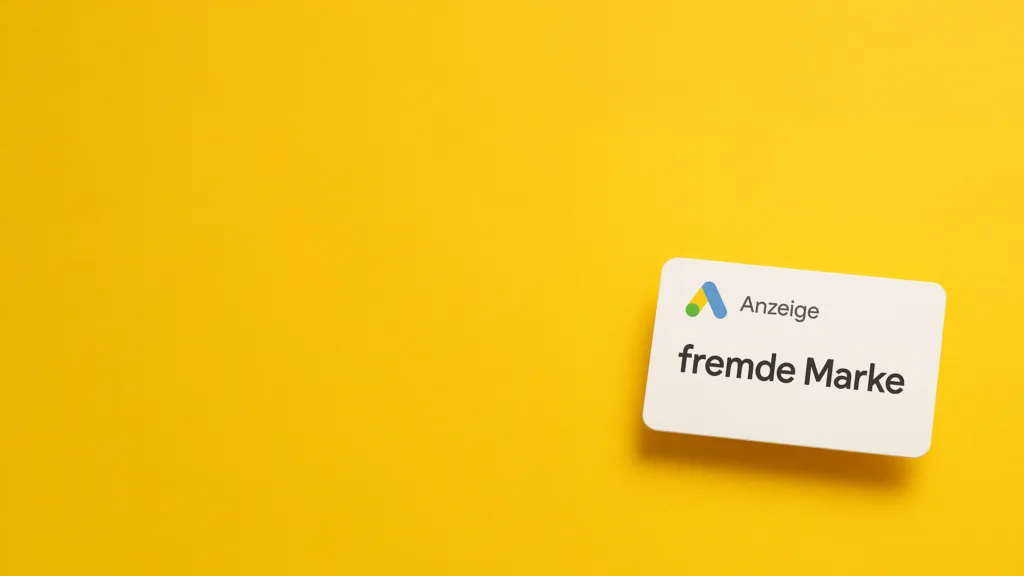
Google
is liable as
Interferer.
is liable as
Interferer.
from
Düsseldorf Regional Court confirms Google’s liability for interference. Even under the Digital Services Act, Google is liable for infringing content in the context of Google Ads from the time it becomes aware of its illegality.
Google Ads
Google Ads is an advertising system from the search engine operator that enables advertisers to place ads. The text ads placed are based on the search results when using the search engine. The user is directed to the advertiser’s landing page via a link.
The lawsuit was filed by the operator of an online marketplace for gaming skins, whose registered EU trademark was used without authorization in a Google Ads ad. Information about the advertiser of this ad was not recognizable at first glance. The landing page was also modeled on the trademark owner’s website and was apparently used to collect payment and login data. After Google failed to respond to the trademark owner’s cease and desist letter, it obtained an injunction requiring the search engine operator to cease and desist from unauthorized trademark use in third-party advertisements. An appeal against this decision was unsuccessful.
Liability for interference from knowledge
In its judgment of 04.12.2024 – 2a O 112/23, the Düsseldorf Regional Court confirmed the interim injunction. Google is not liable as a perpetrator or participant because the search engine operator neither operates the attacked phishing site nor uses the sign itself in advertisements.
From the time of knowledge, Google is liable as an interferer for the continuing – core-like – trademark infringements.
Google is an intermediary service within the meaning of the Digital Services Act (DSA). According to the DSA, providers of intermediary services are not subject to a general obligation to monitor the information they transmit or to actively search for circumstances that indicate illegal activity. The provider of a hosting service – as in the case of Google – is also not liable for the information stored on behalf of the user if it has no actual knowledge of illegal activity or illegal content or if it takes swift action from the time it becomes aware of it.
In the event of an infringement of absolute laws – which also include trademarks – claims for injunctive relief can be asserted against anyone who has in any way intentionally and adequately-causally contributed to the infringement of the protected legal interest. In the opinion of the court, the warning letter in this case triggered the liability for interference because the search engine operator was informed of the clear infringements in a sufficiently concrete manner. Google is liable as a disturber for the continuing – identical – infringements.
Conclusion
Even taking into account the Digital Services Act, the liability of hosting services for trademark infringements is not excluded. It is true that they still have no general obligation to check and monitor the hosted content. However, this does not apply as soon as they become aware of the infringing content. From this point onwards, they are liable as a disturber for the ongoing core-like infringements unless they take immediate action.
We are happy to
You are welcome to
Interference liability!







